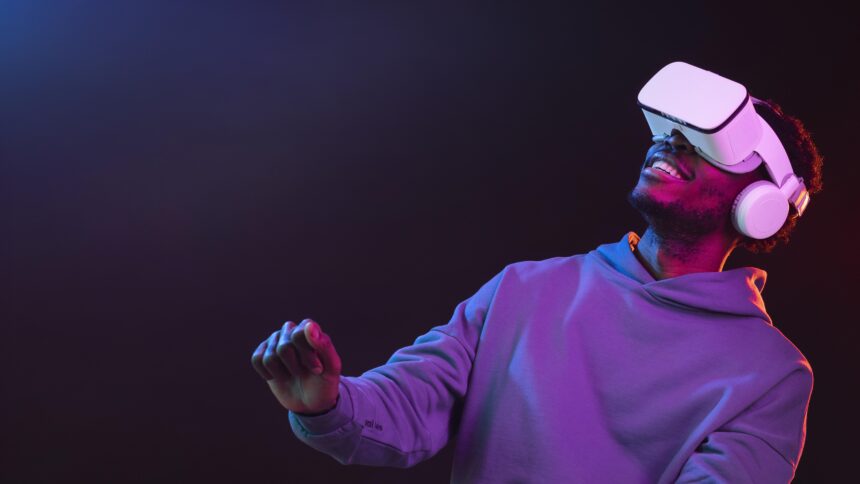In recent years, the world has witnessed the rapid emergence and convergence of two groundbreaking technologies: Non-Fungible Tokens (NFTs) and Virtual Reality (VR). South Africa, a vibrant and diverse country known for its rich cultural heritage and technological innovation, has been at the forefront of exploring the potential of these immersive technologies. This article explores the South African experiences in combining NFTs and VR to unlock new opportunities in the realm of digital art, gaming, and virtual experiences.
NFTs: The Artistic Revolution
Non-Fungible Tokens (NFTs) have revolutionized the art world by providing a secure and decentralized platform for the creation, buying, and selling of digital assets. In South Africa, artists and creators have embraced this technology to showcase their talent and preserve their work in a unique manner. NFTs allow artists to tokenize their digital artwork, enabling them to retain ownership, track provenance, and receive royalties whenever their works are sold or traded.
Through platforms like Rarible and OpenSea, South African artists have gained exposure to a global audience, transcending geographical boundaries and traditional art market limitations. This newfound accessibility has empowered artists from diverse backgrounds to monetize their creations, foster collaborations, and establish themselves as influential players in the global art scene.
Virtual Reality: A Gateway to Immersive Experiences
Virtual Reality (VR) has transported users to new realms by immersing them in digitally simulated environments. South Africa, with its strong technological infrastructure and growing VR ecosystem, has embraced this immersive technology across various industries. From entertainment and gaming to education and tourism, VR has opened doors to entirely new experiences.
In the gaming sector, South African developers have harnessed the power of VR to create captivating and realistic virtual worlds. Players can now engage in thrilling adventures, solve puzzles, and interact with lifelike characters, offering a level of immersion previously unimaginable.
VR has also found practical applications in education and training. From medical simulations and architectural walkthroughs to virtual classrooms and skills development programs, South African institutions are utilizing VR to enhance learning outcomes and bridge the gap between theory and practice.
Convergence of NFTs and VR: South African Innovations
The convergence of NFTs and VR has brought about exciting possibilities for South African creators and enthusiasts. By combining the secure ownership and provenance tracking of NFTs with the immersive experiences of VR, new avenues are being explored.
In the realm of digital art, South African artists have begun creating virtual galleries and exhibitions that can be experienced through VR headsets. Users can navigate these virtual spaces, admire the artwork, and even purchase NFTs directly from within the VR environment. This integration not only enhances the viewing experience but also provides artists with a novel way to showcase and monetize their creations.
Furthermore, the gaming industry is witnessing the emergence of blockchain-based virtual worlds where players can buy, sell, and trade NFTs representing in-game assets, such as characters, weapons, and environments. South African game developers are at the forefront of these innovations, crafting immersive experiences where players can truly own and personalize their virtual possessions.
Challenges and Future Outlook
While the convergence of NFTs and VR presents exciting opportunities, there are challenges that need to be addressed. The accessibility of VR technology, cost barriers, and the environmental impact of blockchain transactions are factors that require careful consideration. However, ongoing advancements in both technologies and growing community involvement promise to overcome these hurdles and create a more inclusive and sustainable ecosystem.
Looking ahead, the South African experiences in immersive technology are poised to further shape the global landscape. As more artists embrace NFTs and VR, and as the technology becomes more accessible, the boundaries between physical and digital art will continue to blur. South Africa’s vibrant creative scene, coupled with its technological prowess, ensures that the nation will play a significant role in defining the future of immersive experiences.
Conclusion
South Africa’s exploration of the convergence between NFTs and VR showcases the country’s ability to combine innovative technologies with its rich artistic and cultural heritage. Through the utilization of NFTs, South African artists have gained international recognition and financial empowerment, while VR has allowed for immersive experiences that transcend traditional boundaries. The coming years are likely to witness even more captivating collaborations and groundbreaking innovations as South Africa continues to push the boundaries of immersive technology, solidifying its place on the global stage.










